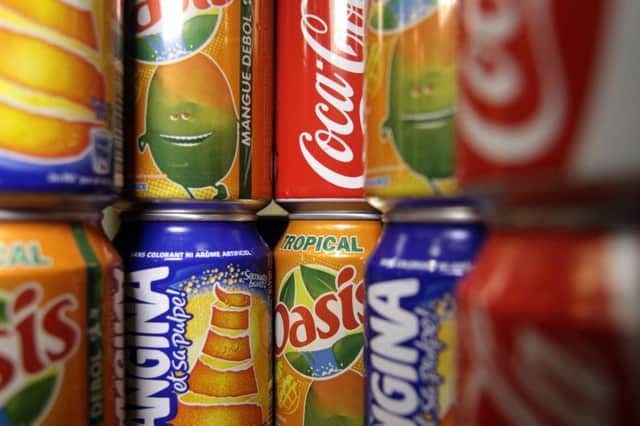One fizzy drink a day ‘puts kids over sugar limit’


The study, by the Scientific Advisory Committee on Nutrition (SACN), the UK’s official nutrition advisers, recommends that “free sugars” account for no more than five per cent of daily energy intake, half the previous recommended limit, and confirming provisional guidance first issued last year.
It said that the consumption of sugar-sweetened beverages – including fizzy drinks, soft drinks and squash – should be minimised by both children and adults, while adults should increase their intake of fibre to 30g a day. A high-sugar diet has been linked with conditions such as obesity and type 2 diabetes.
Advertisement
Hide AdAdvertisement
Hide AdThe Scottish Obesity Unit, set up by the Scottish Academy of Medical Royal Colleges and Faculties to tackle the growing obesity crisis north of the Border, said that the government needed to take action to help people reduce their sugar intake.
A spokeswoman for the Scottish Obesity Unit said: “We would urge Scottish and UK Governments to take action on the recommendations, working with us to identify and implement policies and actions that can help achieve the health improvements and preventive savings that would benefit individuals, NHS Scotland and the public services.”
Maureen Watt, minister for public health, said the government accepts the recommendations of this report. “We are seeking further advice from Food Standards Scotland in determining the impact on the Scottish dietary goals,” she said.
Health experts said five per cent of daily energy intake is the equivalent of 19g or five sugar cubes for children aged four to six, 24g or six sugar cubes for children aged seven to 10, or seven sugar cubes for those aged 11 and over.
An average can of fizzy drink contains about seven sugar cubes, the study said, while there are around eight in the average bowl of ice cream. The report recommended the use of the term “free sugar”, which includes table sugar, the sugar added to food and drinks, and that found naturally in fruit juices, syrups and honey.
It also said that existing guidance that starchy carbohydrates, wholegrain where possible, should form half of an adult’s of daily calories should be maintained.
Professor Ian Macdonald, chair of the SACN Carbohydrates and Health working group, said: “The evidence is stark – too much sugar is harmful to health and we all need to cut back.”
Professor Brian Ratcliffe, emeritus professor of nutrition at Robert Gordon University in Aberdeen, said: “The recommendations to limit free sugars to five per cent of energy intake and to aim for 30g per day for dietary fibre reflect the accumulating evidence that added sugars contribute to excessive energy intakes leading to weight gain and obesity.”